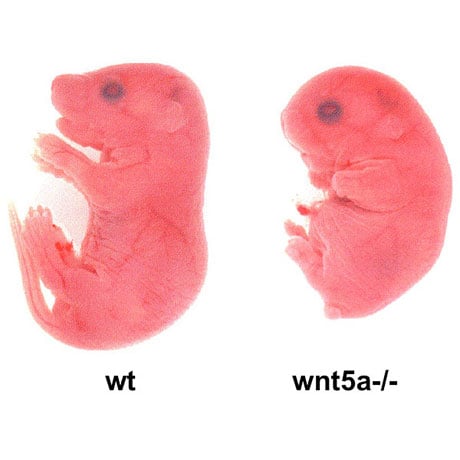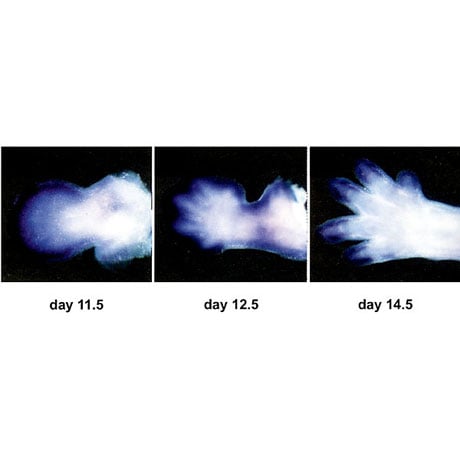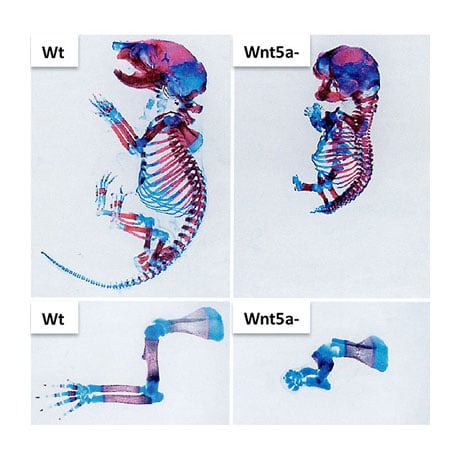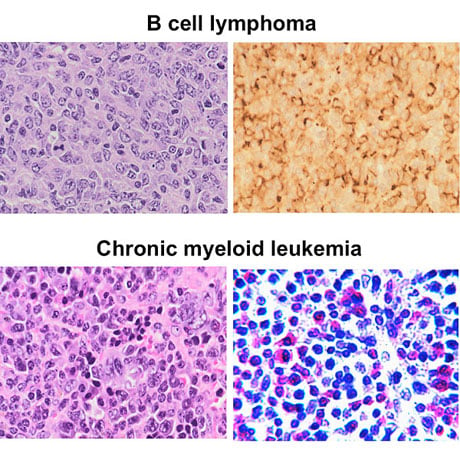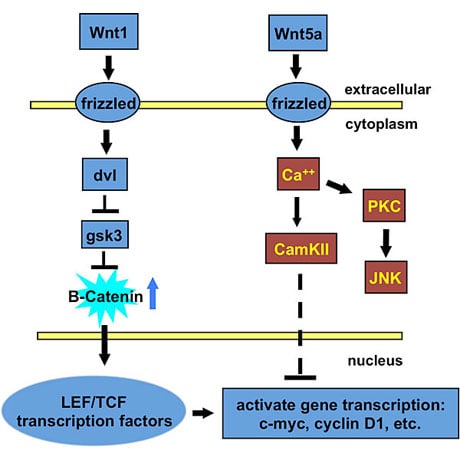Non-canonical Wnt Signaling in Development and Cancer
Wnt5a is a member of the WNT family of secreted glycoproteins that function as paracrine or autocrine signals to regulate growth control and tissue patterning. We have generated several Wnt5a mouse models to investigate the role of Wnt5a in development, and have determined that Wnt5a is required for proper gastrulation and organogenesis. We have also found that Wnt5a is critical for normal T cell development: Wnt5a produced in the thymic stromal epithelium alters canonical B-catenin signaling in thymocytes and regulates the survival of ab lineage cells by altering Bax and Bcl2 expression. In addition, we have identified an autocrine signaling role for Wnt5a in the regulation of B-cell proliferation and in suppressing B-cell lymphomas and myeloid tumorigenesis in mice and humans. We have recently generated Wnt5a-conditional mice, and will continue to explore the role of non-canonical Wnt5a signaling in tumor suppression and in inhibiting the canonical Wnt/B-catenin signaling pathway.
